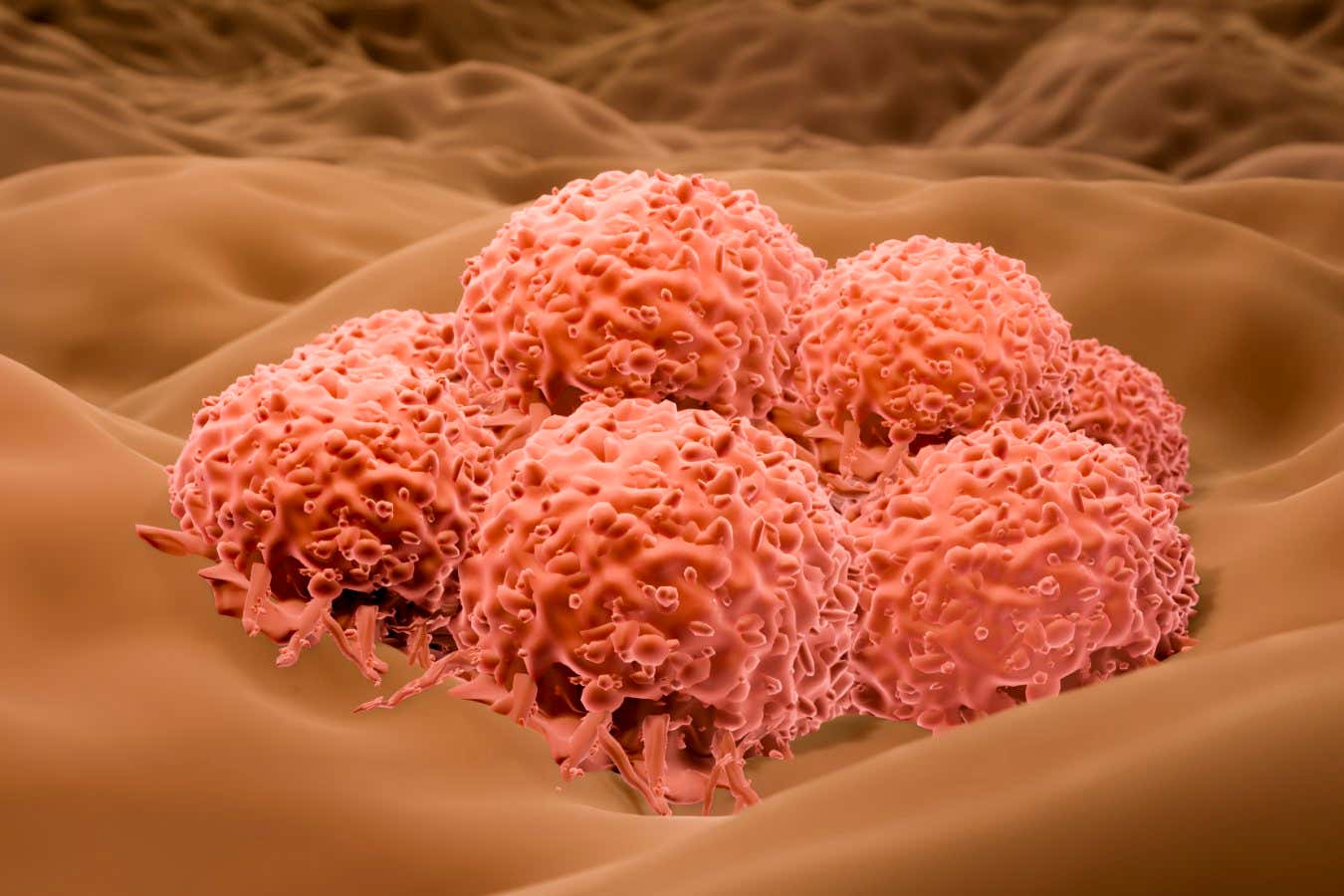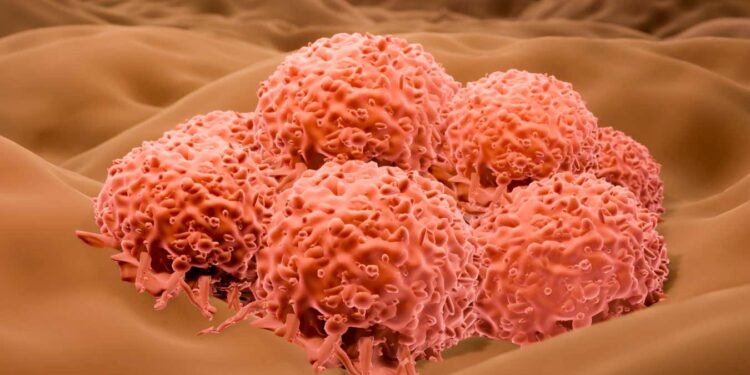
Melanoma is a type of skin cancer that can spread elsewhere in the body
SCIENCE PHOTO LIBRARY
Despite many decades of effort and numerous human trials, only one virus that is designed to kill cancers has ever been approved by regulators in the US and Europe. But a second could get the green light at the end of the month, after getting good results for treating melanoma, a particularly serious type of skin cancer.
A genetically modified herpes virus, called RP1, was injected into the tumours of 140 people with advanced melanoma for whom standard treatments had failed. The participants also took a drug called nivolumab, which is designed to boost the immune response to tumours.
In 30 per cent of those treated, tumours shrank, including those that were not injected. In half of these cases, the tumours disappeared altogether.
“Half the responders had complete responses, meaning the complete disappearance of all tumours,” says Gino Kim In at the University of Southern California. “We’re very excited about these results.” The other options for treating people at this stage don’t work as well and have more serious side effects, he says.
A later-stage trial that will involve 400 people is now under way, but RP1 could be approved by the Food and Drug Administration (FDA) in the US for treating advanced melanoma in combination with nivolumab long before this trial finishes, In told New Scientist. “The FDA is supposed to give us a decision at the end of this month.”
It has been known for more than a century that viral infections can sometimes help treat cancers, but deliberately infecting people with “wild” viruses is very risky. In the 1990s, biologists began genetically modifying viruses to try making them better at treating cancers, but unable to harm healthy cells.
These viruses are designed to work in two ways. Firstly, by directly infecting cancer cells and killing them by bursting them apart. Secondly, by triggering an immune response that targets all cancerous cells, wherever they are in the body.
For instance, a herpes simplex virus known as T-VEC, or Imlygic, was modified to make infected tumour cells release an immune-stimulating factor called GM-CSF, among other changes. In 2015, T-VEC was approved in the US and Europe for treating inoperable melanoma.
But T-VEC is not widely used, says In, in part because it was only tested on and approved for injecting into tumours in the skin. Most people with advanced melanoma have deeper tumours, he says.
With RP1, the decision was made to also try injecting it into deeper tumours. RP1 is a herpes simplex virus, like T-VEC, but has been improved in numerous ways. In particular, it makes tumour cells fuse with neighbouring cells, helping the virus to spread through tumours and boosting the immune response.
There have been no directly comparable trials of T-VEC and RP1, but RP1 is more likely to induce shrinking of all tumours, not just the injected ones, In says. “That indicates a more powerful systemic effect.”
Therefore, In expects RP1 to be much more widely used than T-VEC if it is approved. It will also provide a big boost to the whole idea of using cancer-killing viruses, he says. “I expect there will be a lot more interest.”
Topics:
Source link : https://www.newscientist.com/article/2487470-herpes-virus-could-soon-be-approved-to-treat-severe-skin-cancer/?utm_campaign=RSS%7CNSNS&utm_source=NSNS&utm_medium=RSS&utm_content=home
Author :
Publish date : 2025-07-08 21:00:00
Copyright for syndicated content belongs to the linked Source.














